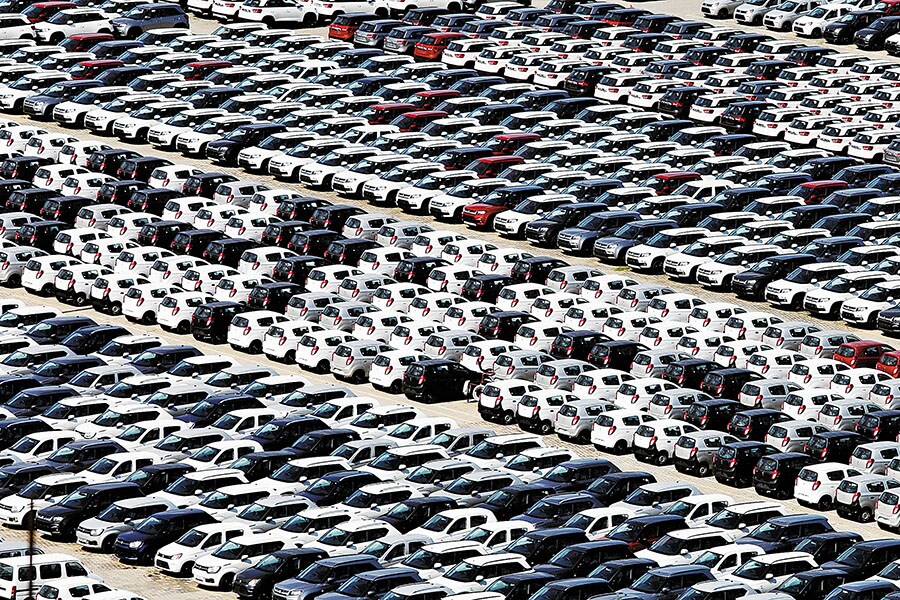July sales leave automakers upbeat
Indian carmakers are upbeat as sales in July are at similar levels as last year, but the road ahead may be tough


 Image: Anushree Fadnavis / Reuters[br]July was a month to cheer for India’s carmakers. After months of gloom, the automobile industry seems to be limping back to some normalcy, with passenger vehicle sales in the month reaching similar levels compared to last July.
Image: Anushree Fadnavis / Reuters[br]July was a month to cheer for India’s carmakers. After months of gloom, the automobile industry seems to be limping back to some normalcy, with passenger vehicle sales in the month reaching similar levels compared to last July.
India’s largest carmaker, Maruti Suzuki India Limited, posted total sales of 108,064 units, a growth of 88.2 percent over June 2020, and a fall of 1.1 percent over July 2019. Hyundai Motor India, the country’s second-largest carmaker, saw its domestic sales at 38,200 units last month as against 39,010 units in July 2019, down by 2 percent. At Mahindra & Mahindra (M&M), the passenger vehicles segment saw sales of 11,025 vehicles in July compared to 16,831 vehicles in July 2019.
“At Mahindra, we are happy to see a growing trend in our overall vehicle sales, buoyed by the continuing revival in demand, primarily in rural and semi-urban India,” says Veejay Nakra, chief executive officer, automotive division, M&M. “It is encouraging to see that the inquiry and booking levels in July are significantly higher compared to June, both for utility vehicles and small commercial vehicles. As we ramp up production, the biggest challenge is on the supply side.”
However, the joy could be short-lived. “There are three main reasons for the growth in July,” explains Puneet Gupta, associate director for automotive forecasting at market research firm IHS Markit. “There was pent up demand since March when the lockdown was announced and besides, many dealers were sitting on low inventory as India was in the midst of a transition to the BS-VI engines. Hence production would have increased, and lastly, the festivals are around the corner.”
All that, Gupta reckons will lead to improved sales over the next few months. “But the next year will be tough, as the economy has taken a hit, and there have been job losses and salary cuts too. Unless the government comes in with some package, it may be difficult,” he says.
The automobile sector was in the midst of a prolonged slowdown since November 2018. Sales had declined largely due to a slowdown in the economy, in addition to a plan to shift to BS-VI engines from April 2020.
First Published: Aug 12, 2020, 11:19
Subscribe Now